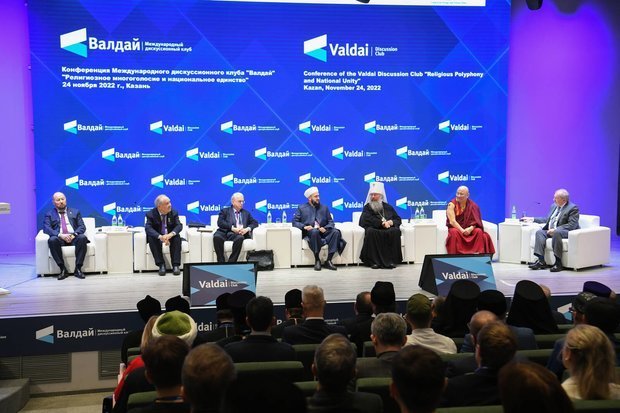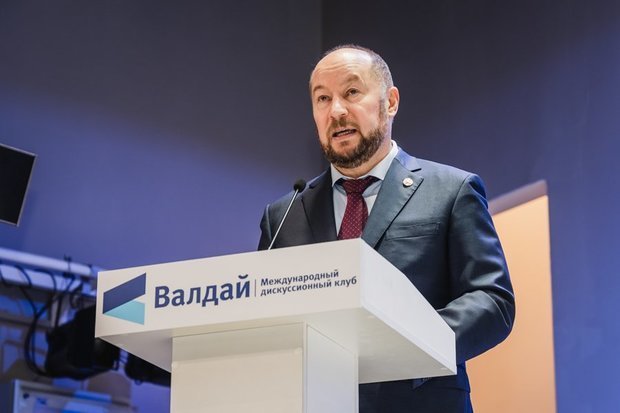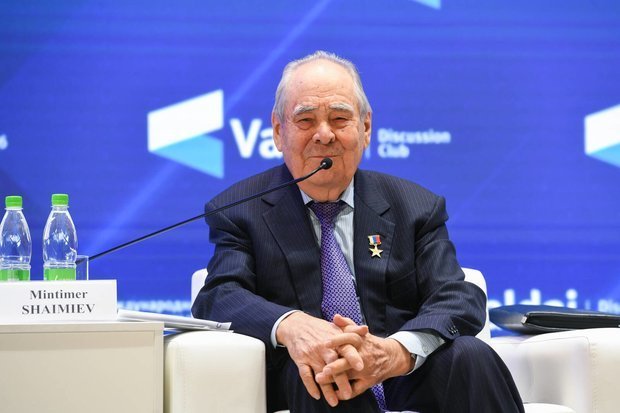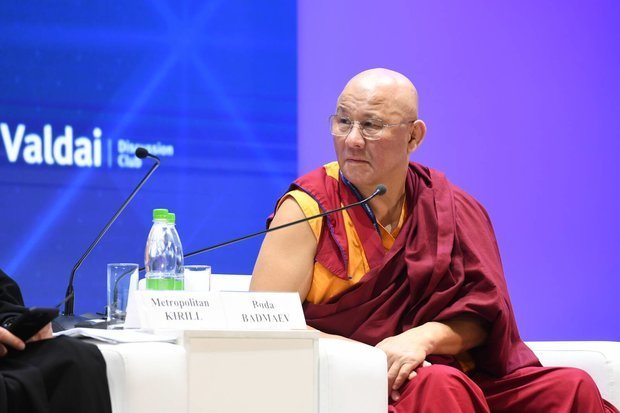‘Real religious and ethnic diversity can provide greater political stability’
Valdai Club discussed religious polyphony and national unity in Kazan
The Valdai International Discussion Club gathered in Kazan at the conference “Religious Polyphony and National Unity” with the participation of experts from Russia, Egypt, India, Iran, Malaysia, the UAE, Serbia and Tajikistan. The issues of sustainability of multinational and multi-confessional societies and how they could cooperate in the conditions of geopolitical tension were discussed. Read the details in the material of Realnoe Vremya.
“We do not atomise the society”
The event was held in the conference hall of the National Library of the Republic of Tatarstan (while its work continued).

Noting the uniqueness of Tatarstan as a multinational environment, Chairman of the Board of the Valdai Club Development and Support Foundation Andrey Bystritsky said:
“Today we live in a very difficult time, which requires a very attentive attitude to how we are able to negotiate with each other, how we manage to maintain unity with all our diversity.”
“The richness of ethnic and religious diversity, reliance on traditional values are the fundamental foundations of our society, the most important advantage of the country, which allows us to preserve the unity of the Russian people, a strong and sovereign state together with openness to the outside world," head of the Administration of the President of Tatarstan Asgat Safarov said at the plenary session of the conference.
“The peoples that were part of Russia had their own religious traditions, therefore, very early interaction with Orthodox culture forms that unique experience of coexistence of friendship and harmony of peoples, national and religious faiths, which significantly distinguishes Russia from many other regions of the world," said Metropolitan Kirill of Kazan and Tatarstan.

Later, his words, already at the sessions, were continued by Nur Kirabayev, the advisor to the rector's Office for Scientific Activities, director of the Interuniversity Centre for Humanitarian Education of the RUDN, who, quoting Theophan the Recluse, pointed out that the collective rights of believers are recognised in Russia: “We do not atomise society, we recognise the collective rights of believers, we do not atomise society, we do not divide it into individuals and small cells, we see society as a whole, as a process, and not just as a set of components. This generally distinguishes the Orthodox and Islamic way of thinking from the one that has existed in the West for centuries and has led to the threat of dehumanisation.”
Common values
“Each nation has its own traditions and culture. But the values that traditional religions carry are common to all peoples," Mufti of Tatarstan Kamil khazrat Samigullin echoed. “The religions of monotheism teach their followers morality and that all people, regardless of nation, have one common ancestor — Adam aleikhi salam.”
Especially important for the mufti was the fact that the tradition of wearing a headscarf is inherent not only in Islam, but also in Christianity and Judaism (while the absence of representatives of the oldest Abrahamic religion in the audience raised questions).
Tatarstan State Councelor Mintimer Shaimiev, as always, confirmed his words with deeds, recalling, in particular, how on the 1000th anniversary of Kazan, the heads of the largest farms of the republic agreed to sell 2 hundredweight of grain to create the foundation, which was called Vozrozhdenie (Revival). Then we collected 32 billion rubles.
“In 1986, there were only 18 mosques and 15 Orthodox churches in Tatarstan. Now there are more than 1,500 mosques and 500 Orthodox churches," Shaimiev said. “Tatarstan today is a subject of the country that has found ways to resolve these issues. This is a specific and very painstaking work that concerns all the faiths represented here. We revive the material heritage and, at the same time, gain spirituality.”

Two sessions were also held at the conference: “Religious interaction between countries as one of the foundations of peace and development” and “Religious polyphony and political stability”. At the first one, the secretary general of the World Council of Muslim Communities, Muhammad Beshari, concretised Samigullin's words in his own way, who named three principles of all religions: the sacredness of life, the sacredness of the family, and the sacredness of the Motherland.
“Love for the Motherland is faith. There is no contradiction between love for the Motherland and its protection," Beshari summed up.
At the same session, Andrey Bolshakov, the head of the Department of International Relations, World Politics and Diplomacy of the Institute of International Relations of the Kazan Federal University, contrasted the experience of the West and Russia:
“In the West, we see the total dominance of liberal ideas over society, so it is difficult to imagine a dialogue between Orthodoxy and Catholicism.”
“We should find a clear way to understand each other”
The moderator of the second session was Alexander Rakovich, the chief researcher at the Institute of Modern History of Serbia in Belgrade, when he noted that this topic was very close to him — as a witness to the events in Yugoslavia in the 1990s:
“The topic of our session emphasises the importance of the dialogue of religions, religious polyphony and political stability.
“Contrary to popular opinion, real religious and ethnic diversity can provide greater political stability than formal uniformity if reliable social balances are provided. The more complex the systems, the more balanced they can be," said Alikber Alikberov, the director of the Institute of Oriental Studies of the Russian Academy of Sciences (on the poster). “Historical development follows the path of complication of social systems. Special tools are needed to study system complexity. One of these tools, system-communication one, offers a multidimensional understanding of history, social reality, and even a person instead of a simple linear perception of reality.”
Interestingly, speakers at the conference were representatives of three religions — Orthodoxy, Islam and Buddhism. It is obvious that in the conditions of changing geopolitical situation, representatives of Asia will now have a lot of weight. Did Hambo, Lama of the Buddhist traditional Sangha of Russia in the North-Western region, St. Petersburg datsan Shireeta Lama Badmaev Buda pointed out that calmness is achieved through the ability to negotiate:
“Spiritual and moral values should be explained to each nation. We must find a clear way to understand each other and understand the spiritual content on which we are based.”
